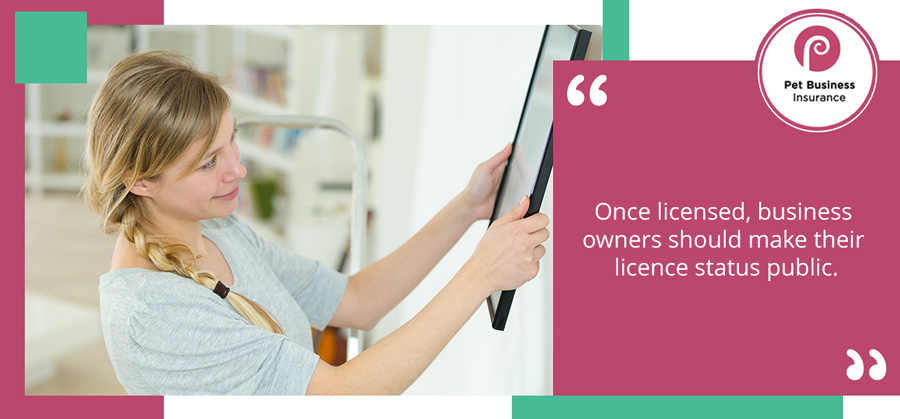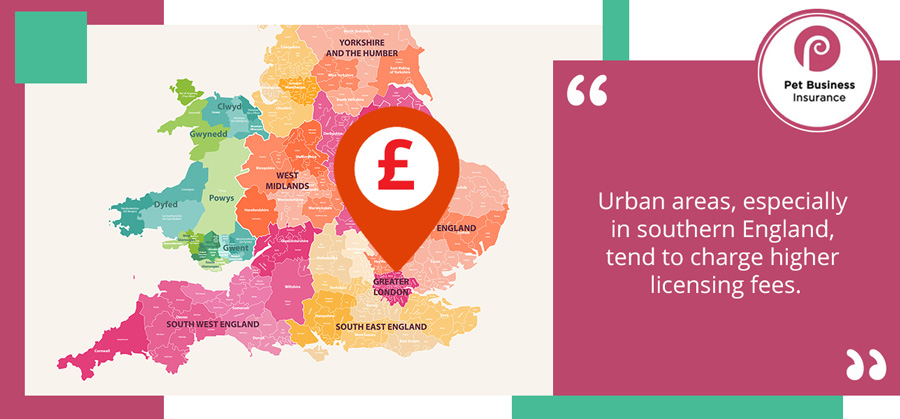
If you plan to start a dog boarding business, understanding what’s involved in obtaining a dog boarding licence is important.
While this post discusses the fees associated with licensing, it also aims to help potential new businesses by providing a contextual background, including the legal framework for licensing, application procedures, and insurance requisites (an additional cost to consider).
A legal overview of dog boarding licensing
In the UK, dog boarding is a regulated activity, requiring a licence to operate legally. This is to ensure boarding facilities meet adequate standards of animal welfare and safety.
The regulations evolved from two pieces of legislation:
- Animal Boarding Establishment Act 1963: requires animal boarding facilities to be licensed to ensure proper care and management.
- Animal Welfare (Licensing of Activities Involving Animals) (England) Regulations 2018: safeguards the welfare of animals in a domestic setting by providing rules on the conditions animals can be kept in, nutritional considerations, and veterinary care standards.

Being licensed to trade will always allow potential clients to be confident that your business is legitimate and compliant. It authorises the care of clients’ pets within your home or purpose-built kennels, and proves that you are capable, professional, and will ensure animals are not harmed.
The licence application process
Securing a dog boarding licence involves:
- approaching your local council
- submitting an application
- paying a fee
- undergoing an inspection of the boarding premises.
The application process is variable but may extend over several weeks. During an inspection, the premises will be scrutinised by an inspector to assess compliance with:
- hygiene standards
- the amount of space available
- exercise facilities
- provisions for nutrition and veterinary care.
Local authorities often require insurance coverage as a safeguard against unforeseen eventualities such as accidents or injuries. Adequate business cover should therefore be put in place prior to the application process; it will be one of the factors that contribute to a successful application.
Under certain circumstances, if an application is made but a final decision on whether to issue a licence is not made by the licensing authority, it may be possible to claim ‘tacit consent’ for the boarding of animals at your premises. Not all authorities allow for this, so always check.
It’s important to be aware that potential consequences for operating boarding facilities while unlicensed can include substantial fines, legal proceedings, and a prospective ban on future operations.

Dog boarding licence fees
The cost of a dog boarding licence in the UK varies by location and the size of the operation. Generally, prices can range from around £100 to £400 annually, with variations in costs based on the policies of different local authorities and the size of your boarding facilities.
Urban areas, particularly in the South of England, tend to have higher fees. If you are establishing your dog boarding business in a city like London, be prepared for a potentially higher licensing fee compared to rural areas. It’s important to factor this in when budgeting for your start-up costs.
Making your licensed status known
Making potential clients aware of the fact you are licensed is an important marketing strategy, so make full use of your investment. Display the licence prominently, mention it in promotional materials, and provide the licence number if asked directly about your status.
What kinds of insurance do you need?
As being insured is an essential part of the licensing process, you should look to get pet boarding insurance from a reliable pet business insurer.
Your insurance should always include:
- public liability insurance: covers you if your business causes harm to someone or damage to someone’s property
- pet accidents and injury insurance: provides protection for any injury to animals in your care, custody, or control, irrespective of whether you were to blame.
A good comprehensive policy should offer additional protections related to risks inherent in your line of work. This includes cover for potential incidents such as:
- loss of an animal
- equipment loss
- loss of your licence

Your business may also require optional forms of insurance, depending on how it operates. For example, if you employ anyone, you must have employers’ liability insurance. You may also want animal illness insurance to cover vet fees that may arise as a result of emergency treatment.
Getting dog boarding insurance cover
As having the right business insurance is a pre-requisite for being licensed to run a dog boarding business, knowing that your insurance is provided by a reputable insurer will be a significant factor in establishing your peace of mind.
For almost two decades, Pet Business Insurance has insured a range of small- and medium-sized pet businesses across a range of specialisms, including dog boarding.
Whether you are running a licensed in-home boarding operation or have your own purpose-built kennels, our policies are designed to cover your typical business liabilities, while also offering the extra protections you need to be protected against common risks – all in one package.
And if you need it, we also offer optional cover for businesses whose circumstances require additional safeguards, such as employers’ liability insurance or a loss of licence extension.
To discuss your dog boarding insurance requirements, get in touch with Pet Business Insurance today. Call 01284 736 874 or complete our online enquiry form.